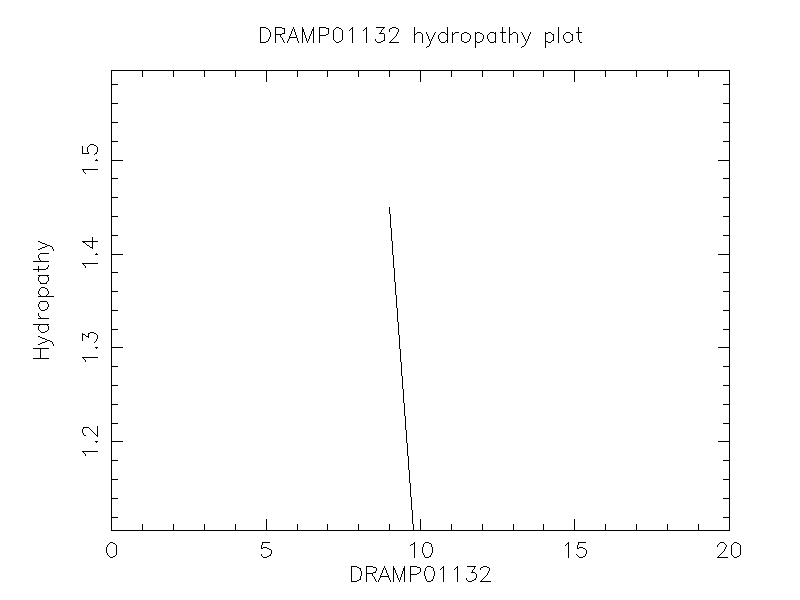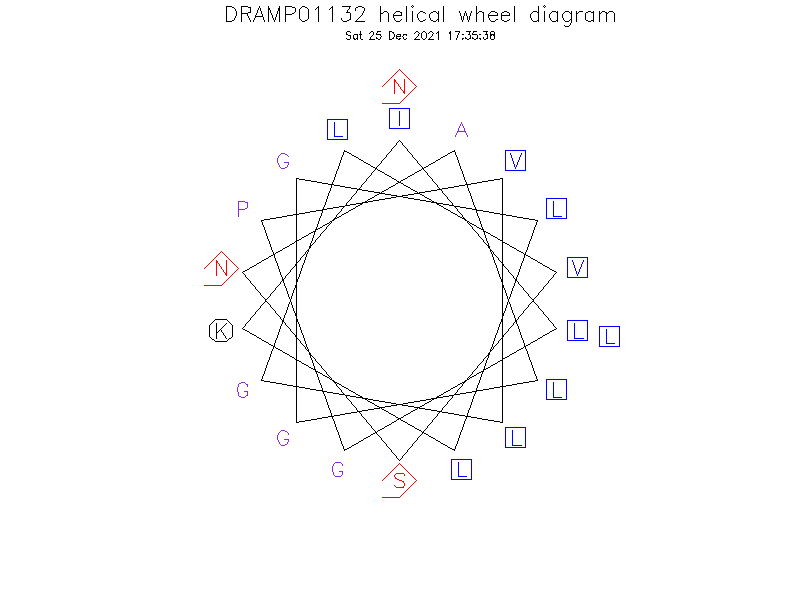General Information
-
DRAMP ID
- DRAMP01132
-
Peptide Name
- Maximin-H10 (toads, amphibians, animals)
-
Source
- Bombina maxima (Giant fire-bellied toad) (Chinese red belly toad)
-
Family
- Belongs to the bombinin family
-
Gene
- Not found
-
Sequence
- ILGPVLGLVSNALGGLLKNL
-
Sequence Length
- 20
-
UniProt Entry
- Q58T59
-
Protein Existence
- Transcript level
Activity Information
-
Biological Activity
- Antimicrobial, Antibacterial, Antifungal
-
Target Organism
-
- [Swiss_Prot Entry Q58T59]Yeast: Candida albicans
-
Hemolytic Activity
-
- [Ref:11835991]90–100% hemolytic activity at 50 μg/ml against rabbit red blood cells
-
Cytotoxicity
-
- Not included yet
-
Binding Target
- Not found
Structure Information
-
Linear/Cyclic
- Not included yet
-
N-terminal Modification
- Not included yet
-
C-terminal Modification
- Not included yet
-
Nonterminal Modifications and Unusual Amino Acids
- Not included yet
-
Stereochemistry
- Not included yet
-
Structure
- Not found
-
Structure Description
- Not found
-
Helical Wheel Diagram
-
PDB ID
- None
-
Predicted Structure
- There is no predicted structure for DRAMP01132.
Physicochemical Information
-
Formula
- C91H161N23O24
Absent Amino Acids
- CDEFHMQRTWY
Common Amino Acids
- L
Mass
- 1961.42
PI
- 8.75
Basic Residues
- 1
Acidic Residues
- 0
Hydrophobic Residues
- 11
Net Charge
- +1
-
Boman Index
- 30.78
Hydrophobicity
- 1.32
Aliphatic Index
- 190
Half Life
-
- Mammalian:20 hour
- Yeast:30 min
- E.coli:>10 hour
Extinction Coefficient Cystines
- 0
Absorbance 280nm
- 0
Polar Residues
- 7
DRAMP01132

Comments Information
Function
- Shows strong hemolytic activity.
Literature Information
- ·Literature 1
-
Title
- Variety of antimicrobial peptides in the Bombina maxima toad and evidence of their rapid diversification.
-
Pubmed ID
- 15770703
-
Reference
- Eur J Immunol. 2005 Apr;35(4):1220-1229.
-
Author
- Lee WH, Li Y, Lai R, Li S, Zhang Y, Wang W.

